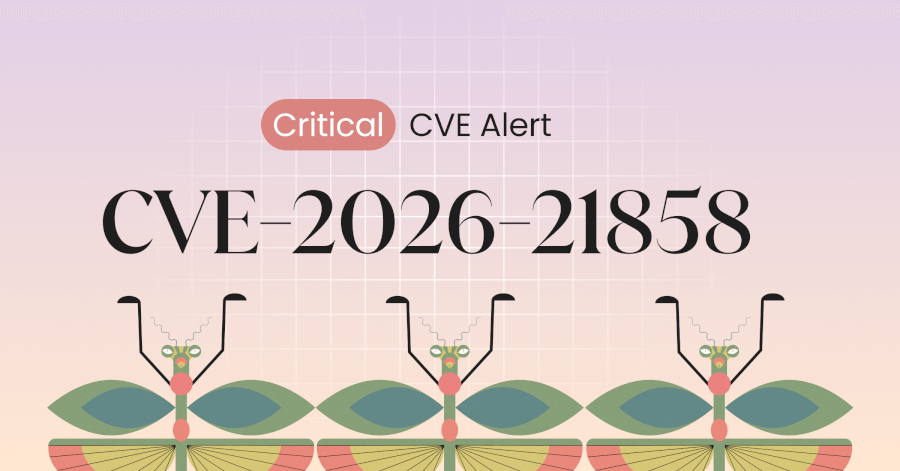CVE-2024-53677: Critical File Upload Vulnerability in Apache Struts2
CVE-2024-53677 is a critical file upload vulnerability affecting Apache Struts2 versions 2.0.0 through 6.3.0. At its core, the vulnerability stems from flaws in the deprecated “File Upload Interceptor” component.
What is CVE-2024-53677?
CVE-2024-53677 is a critical file upload vulnerability affecting Apache Struts2 versions 2.0.0 through 6.3.0. At its core, the vulnerability stems from flaws in the deprecated “File Upload Interceptor” component. Attackers can exploit these flaws to bypass upload restrictions, perform path traversal, and place malicious files in unintended directories.
The implications are dire: under certain conditions, these uploaded files can execute remote code, allowing attackers to take full control of affected systems. The vulnerability has been assigned a CVSS score of 9.5, emphasizing its severity.
Why This Matters
This vulnerability highlights the growing risks associated with legacy code and deprecated components in widely used frameworks. Organizations relying on older versions of Apache Struts2 face immediate threats, especially since proof-of-concept (PoC) exploits have already been observed in the wild. Attackers are scanning for vulnerable systems to deploy malicious payloads, with potential outcomes ranging from unauthorized data access to total system compromise.
Who is at Risk?
Organizations using Apache Struts2 in their application stack are the primary targets. Struts2 is frequently used in mission-critical applications, making it an attractive target for attackers. Sectors such as banking, healthcare, and government, where Struts2 is prevalent, are especially vulnerable.
How the Exploit Works
The attack takes advantage of the file upload mechanism in Struts2. By crafting malicious payloads, attackers manipulate file upload parameters to achieve directory traversal and file placement outside of intended directories. Once the malicious file is uploaded, attackers can exploit it to execute arbitrary code on the host system.
In essence, this is a chain of failures:
1. The deprecated file upload component fails to validate file paths properly.
2. Upload restrictions are bypassed, enabling attackers to place files in sensitive directories.
3. Under specific configurations, the malicious files execute, compromising the system.
Steps to Mitigate the Risk in CVE-2024-53677
Mitigating CVE-2024-53677 requires immediate action. Here are the steps organizations should take to secure their systems:
1. Upgrade to Apache Struts2 Version 6.4.0 or Later
The Apache Struts team has addressed this vulnerability in the latest release. Upgrading eliminates the risk associated with CVE-2024-53677.
2. Migrate Away from Deprecated Components
Transition from the vulnerable “File Upload Interceptor” to the newer “Action File Upload Interceptor.” This requires code modifications but significantly reduces security risks.
3. Conduct Comprehensive Application Testing
Ensure that the new file upload mechanism integrates smoothly with existing application workflows. Test for potential breakages or performance impacts.
4. Monitor Systems for Suspicious Activity
Implement robust monitoring to detect unauthorized file uploads or unexpected behavior. Early detection is critical for minimizing damage.
5. Harden Application Security Configurations
Apply best practices such as restricting file types, enforcing file size limits, and validating file paths before uploads are processed.

The Bigger Picture: Lessons Learned
CVE-2024-53677 is a reminder of the risks associated with legacy components in software frameworks. Organizations must prioritize regular updates and evaluate the security implications of deprecated features. The vulnerability also underscores the need for proactive monitoring and response mechanisms to detect and mitigate threats in real time.
Final Thoughts
Security teams using Apache Struts2 should treat this vulnerability as an urgent call to action. While upgrading and reconfiguring applications may require time and resources, the potential impact of an exploit far outweighs the cost of preventive measures. By addressing CVE-2024-53677 promptly, organizations can safeguard their systems and maintain trust with their users.
For a deeper technical breakdown of this vulnerability, reach out to Kodem’s Security Research team. Together, we can build safer applications.
At Kodem, we help application security teams see their systems through the eyes of an attacker. Learn more about our unique approach to runtime intelligence and attack path analysis by scheduling a live demo.
References:
1. National Vulnerability Database (NVD): CVE-2024-53677
2. Sonatype Security Blog: CVE-2024-53677: A Critical File Upload Vulnerability in Apache Struts2
3. Apache Struts Security Advisory: S2-067
4. Vulcan Cyber: How to Fix CVE-2024-53677
5. BleepingComputer: New Critical Apache Struts Flaw Exploited to Find Vulnerable Servers
6. Ervik Blog: Exploitation Attempts of Critical Apache Struts RCE Vulnerability
More blogs

Prompt Injection Was Never the Real Problem
A review of “The Promptware Kill Chain”Over the last two years, “prompt injection” has become the SQL injection of the LLM era: widely referenced, poorly defined, and often blamed for failures that have little to do with prompts themselves.A recent arXiv paper, “The Promptware Kill Chain: How Prompt Injections Gradually Evolved Into a Multi-Step Malware,” tries to correct that by reframing prompt injection as just the initial access phase of a broader, multi-stage attack chain.As a security researcher working on real production AppSec and AI systems, I think this paper is directionally right and operationally incomplete.This post is a technical critique: what the paper gets right, where the analogy breaks down, and how defenders should actually think about agentic system compromise.

CVE-2026-21858: Ni8mare: Unauthenticated Remote Code Execution in n8n
An unauthenticated Remote Code Execution (RCE) flaw, tracked as CVE-2026-21858 (CVSS 10.0), has been discovered in n8n, the widely-adopted workflow automation platform. With over 100 million Docker pulls and an estimated 100,000 locally deployed instances, this vulnerability transforms n8n from a productivity tool into a severe single point of potential failure for organizations globally.
A Primer on Runtime Intelligence
See how Kodem's cutting-edge sensor technology revolutionizes application monitoring at the kernel level.
Platform Overview Video
Watch our short platform overview video to see how Kodem discovers real security risks in your code at runtime.
The State of the Application Security Workflow
This report aims to equip readers with actionable insights that can help future-proof their security programs. Kodem, the publisher of this report, purpose built a platform that bridges these gaps by unifying shift-left strategies with runtime monitoring and protection.
.png)
Get real-time insights across the full stack…code, containers, OS, and memory
Watch how Kodem’s runtime security platform detects and blocks attacks before they cause damage. No guesswork. Just precise, automated protection.

Stay up-to-date on Audit Nexus
A curated resource for the many updates to cybersecurity and AI risk regulations, frameworks, and standards.



.png)